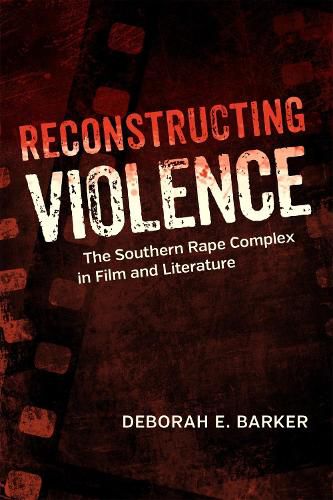Readings Newsletter
Become a Readings Member to make your shopping experience even easier.
Sign in or sign up for free!
You’re not far away from qualifying for FREE standard shipping within Australia
You’ve qualified for FREE standard shipping within Australia
The cart is loading…






In this bold study of cinematic depictions of violence in the south, Deborah E. Barker explores the ongoing legacy of the
southern rape complex
in American film. Taking as her starting point D. W. Griffith’s infamous The Birth of a Nation, Barker demonstrates how the tropes and imagery of the southern rape complex continue to assert themselves across a multitude of genres, time periods, and stylistic modes.
Drawing from Gilles Deleuze’s work on cinema, Barker examines plot, dialogue, and camera technique as she considers several films: The Story of Temple Drake (1933), Sanctuary (1958), Touch of Evil (1958), To Kill a Mockingbird (1962), and Cape Fear (1962). Placing this body of analysis in the context of the historical periods when these films appeared and the literary sources on which they are based, Barker reveals the protean power of cinematic racialized violence amid the shifting cultural and political landscapes of the South and the nation as a whole.
By focusing on familiar literary and cinematic texts - each produced or set during moments of national crisis such as the Great Depression or the civil rights movement - Barker’s Reconstructing Violence offers fresh insights into the anxiety that has underpinned sexual and racial violence in cinematic representations of the South.
$9.00 standard shipping within Australia
FREE standard shipping within Australia for orders over $100.00
Express & International shipping calculated at checkout
In this bold study of cinematic depictions of violence in the south, Deborah E. Barker explores the ongoing legacy of the
southern rape complex
in American film. Taking as her starting point D. W. Griffith’s infamous The Birth of a Nation, Barker demonstrates how the tropes and imagery of the southern rape complex continue to assert themselves across a multitude of genres, time periods, and stylistic modes.
Drawing from Gilles Deleuze’s work on cinema, Barker examines plot, dialogue, and camera technique as she considers several films: The Story of Temple Drake (1933), Sanctuary (1958), Touch of Evil (1958), To Kill a Mockingbird (1962), and Cape Fear (1962). Placing this body of analysis in the context of the historical periods when these films appeared and the literary sources on which they are based, Barker reveals the protean power of cinematic racialized violence amid the shifting cultural and political landscapes of the South and the nation as a whole.
By focusing on familiar literary and cinematic texts - each produced or set during moments of national crisis such as the Great Depression or the civil rights movement - Barker’s Reconstructing Violence offers fresh insights into the anxiety that has underpinned sexual and racial violence in cinematic representations of the South.